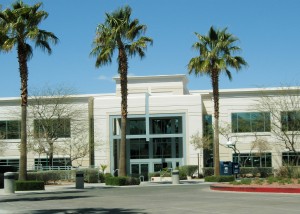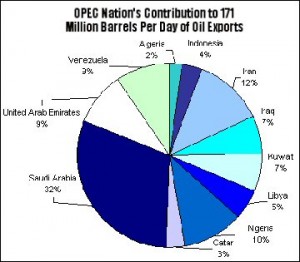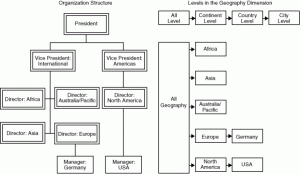Dec
05
2010
Dell today launched a long-term, global effort to partner with its customers to become the greenest technology company on Earth for the long-term. The new Zero Carbon Initiative will continue to maximize the energy efficiency of Dell products and over time offset their carbon impact. The initiative includes the efforts of Dell, its employees and its suppliers and will reflect the direct feedback of its customers. The company also committed to reduce the carbon intensity of its global operations by 15 percent by 2012 and extended its ” Plant a Tree for Me” program to Europe, allowing computer users to offset the emissions associated with the electricity their computers use. The zero-carbon initiative will include IT lifecycle assessments, management of Dell’s direct and indirect climate impacts, reduction of the company’s carbon intensity and partnership with customers.
Sustainability is the potential for long-term maintenance of well being, which has environmental, economic, and social dimensions. There are two major ways of reducing negative human impact and enhancing ecosystem services. The first is environmental management; this approach is based largely on information gained from earth science, environmental science, and conservation biology. The second approach is management of human consumption of resources, which is based largely on information gained from economics. Ways of living more sustainably can take many forms from reorganising living conditions (e.g., ecovillages, eco-municipalities and sustainable cities), reappraising economic sectors (permaculture, green building, sustainable agriculture), or work practices (sustainable architecture), using science to develop new technologies (green technologies, renewable energy), to adjustments in individual lifestyles that conserve natural resources.

 http://www.dell.com/content/topics/global.aspx/corp/pressoffice/en/2007/2007_06_05_lon_000?c=us&l=en
http://www.dell.com/content/topics/global.aspx/corp/pressoffice/en/2007/2007_06_05_lon_000?c=us&l=en
Dec
05
2010
In 1998, 24-year-old Tony Hsieh sold his company, Internet advertiser LinkExchange, to Microsoft for $265 million. A year later, he met an even younger entrepreneur, Nick Swinmurn, who had an idea no investor would touch: selling shoes on the Internet. But Hsieh (pronounced shay) was intrigued and invested $500,000 in ShoeSite.com (they soon changed the name to Zappos, after zapatos, which is Spanish for “shoes”). Within six months, he and Swinmurn were running the show together. Early this year, Swinmurn moved on, leaving Hsieh at the helm of a company that had sales of $252 million in 2005.
“We all sat around one day talking about what we wanted the Zappos brand to represent. We decided to be about providing the best service; we said, “We’re a service company that just happens to sell shoes.” But in order for that to happen, we had to control the entire customer experience.” -Tony Hsieh, CEO
Zappos places great emphasis on company culture and core values. In fact, the company publishes a “Culture Book” annually that is made up of contributions from employees describing what the company culture means to them. I found it very interesting that the company would offer new employees $3000 right after the 4 week training if they want leave the company. This is to ensure that the people are there for the love of the job and not the money. The company proves that focusing on culture and customer satisfaction not only leads to revenue, but also a good company reputation.

 http://www.inc.com/magazine/20060901/hidi-hsieh.html
http://www.inc.com/magazine/20060901/hidi-hsieh.html
Dec
03
2010
Don\’t Count On OPEC\’s Surplus For 2010 As industrial consumption recovers in developed countries such as U.S. and Germany, the Organization of Petroleum Exporting Countries (OPEC) raised its 2011 forecast for global oil demand. OPEC expects oil demand to grow by 1.2 million barrels a day to 86.95 million barrels next year. Oil in New York rose to the highest level in two years today after crude inventories declined in the U.S., the world’s biggest oil user, according to a government report yesterday. Recent strength in U.S. automobile and truck sales will bolster gasoline consumption in the fourth quarter, OPEC said. Global oil demand has been rising since the third quarter of 2009 led by developing economies outside the Organization for Economic Cooperation and Development including Brazil and China, according to the Paris-based International Energy Agency. Growth in oil demand next year is still strongest in China, Latin America and the Middle East, according to today’s report. China accounts for over a third of next year’s growth in demand in volume terms, OPEC said.
As industrial consumption recovers in developed countries such as U.S. and Germany, the Organization of Petroleum Exporting Countries (OPEC) raised its 2011 forecast for global oil demand. OPEC expects oil demand to grow by 1.2 million barrels a day to 86.95 million barrels next year. Oil in New York rose to the highest level in two years today after crude inventories declined in the U.S., the world’s biggest oil user, according to a government report yesterday. Recent strength in U.S. automobile and truck sales will bolster gasoline consumption in the fourth quarter, OPEC said. Global oil demand has been rising since the third quarter of 2009 led by developing economies outside the Organization for Economic Cooperation and Development including Brazil and China, according to the Paris-based International Energy Agency. Growth in oil demand next year is still strongest in China, Latin America and the Middle East, according to today’s report. China accounts for over a third of next year’s growth in demand in volume terms, OPEC said.
Similarly, to avoid stock-outs and maintain adequate inventory levels, it is vital to manufacturers and distributors to understand and predict customer demand. Forecasts are necessary to prepare for actual demand, even though they’re not always accurate or correct. Furthermore, accurate demand forecasts are crucial in order to maintain an optimized inventory and effective supply chain.
http://www.bloomberg.com/news/2010-11-11/opec-raises-2011-demand-forecast-on-signs-of-strong-u-s-german-growth.html
Dec
03
2010
 In order to facilitate the development of the company and its continuous growth, the credit Management Services company, Intrum Justitia, has decided to create 3 geographical regions. The new organization consists of these regions: Northern, Central, and Western Europe. The original region CEE (Central and Eastern Europe) will be dissolved and country operations of Czech Republic, Slovakia and Hungary will be included in the new region Central Europe. Also, Region Southern Europe, region Belgium & Netherlands and region UK & Ireland will be merged into Region Western Europe. According to Lars Wollung, the company’s President and CEO, “by creating fewer and larger regions we will be able to launch new services faster and benefit from the economies of scale gained across the entire Intrum Justitia Group.”
In order to facilitate the development of the company and its continuous growth, the credit Management Services company, Intrum Justitia, has decided to create 3 geographical regions. The new organization consists of these regions: Northern, Central, and Western Europe. The original region CEE (Central and Eastern Europe) will be dissolved and country operations of Czech Republic, Slovakia and Hungary will be included in the new region Central Europe. Also, Region Southern Europe, region Belgium & Netherlands and region UK & Ireland will be merged into Region Western Europe. According to Lars Wollung, the company’s President and CEO, “by creating fewer and larger regions we will be able to launch new services faster and benefit from the economies of scale gained across the entire Intrum Justitia Group.”
Commonly, divisional structure is based upon region, product, and function. In this case, reorganizing the company’s regional structure allows for greater efficiency and productivity. Thus, in order for Intrum to expand, structural changes are necessary, allowing them to be more responsive to local cultural differences and consumer needs. This corresponds to the spans of control. As Intrum expands, managers may need to pass on to others some of their roles and responsibilities.
http://findarticles.com/p/news-articles/wireless-news/mi_hb5558/is_20101004/intrum-justitia-unveils-adjustments-organizational/ai_n55440106/

 http://www.dell.com/content/topics/global.aspx/corp/pressoffice/en/2007/2007_06_05_lon_000?c=us&l=en
http://www.dell.com/content/topics/global.aspx/corp/pressoffice/en/2007/2007_06_05_lon_000?c=us&l=en


